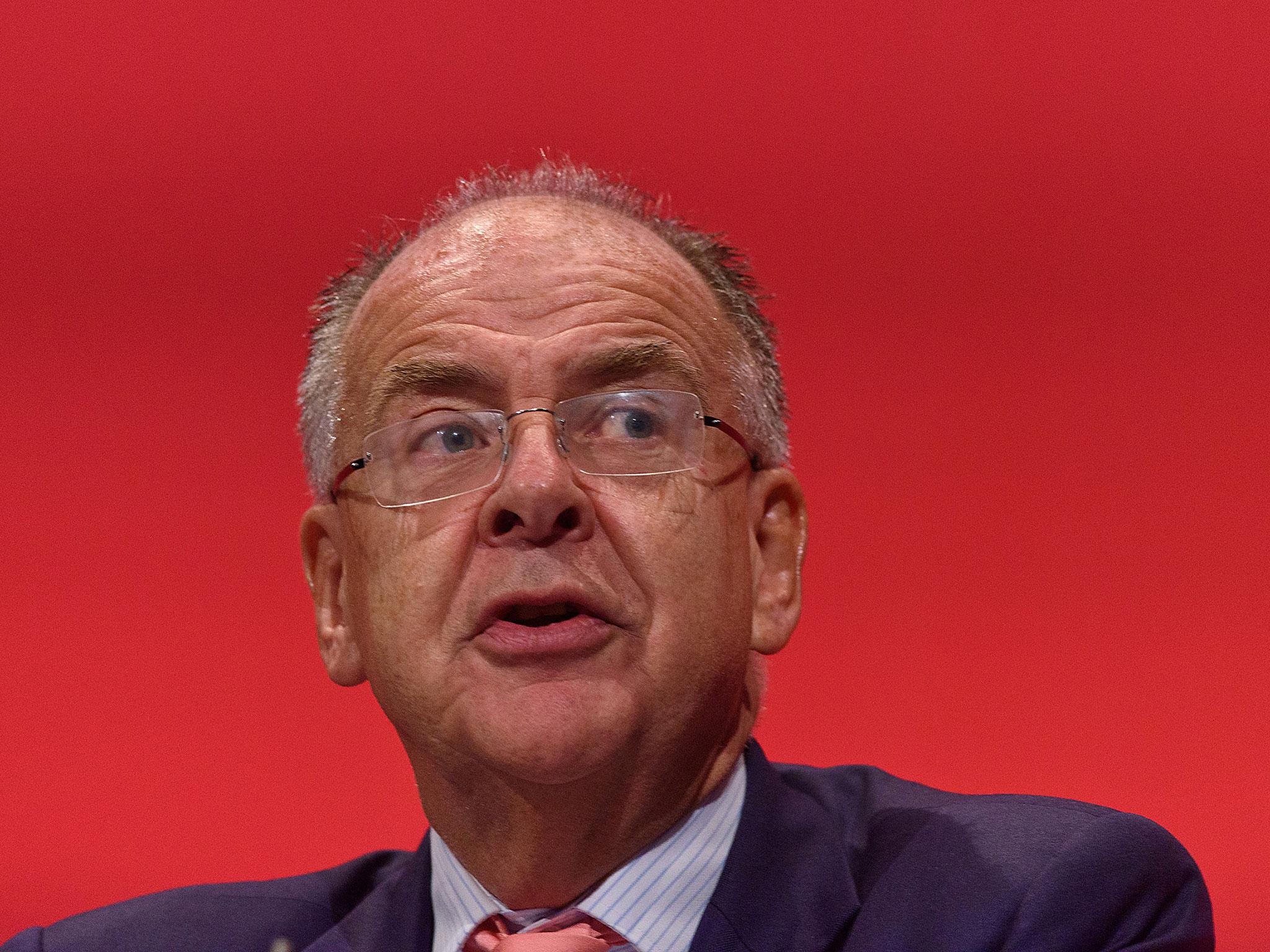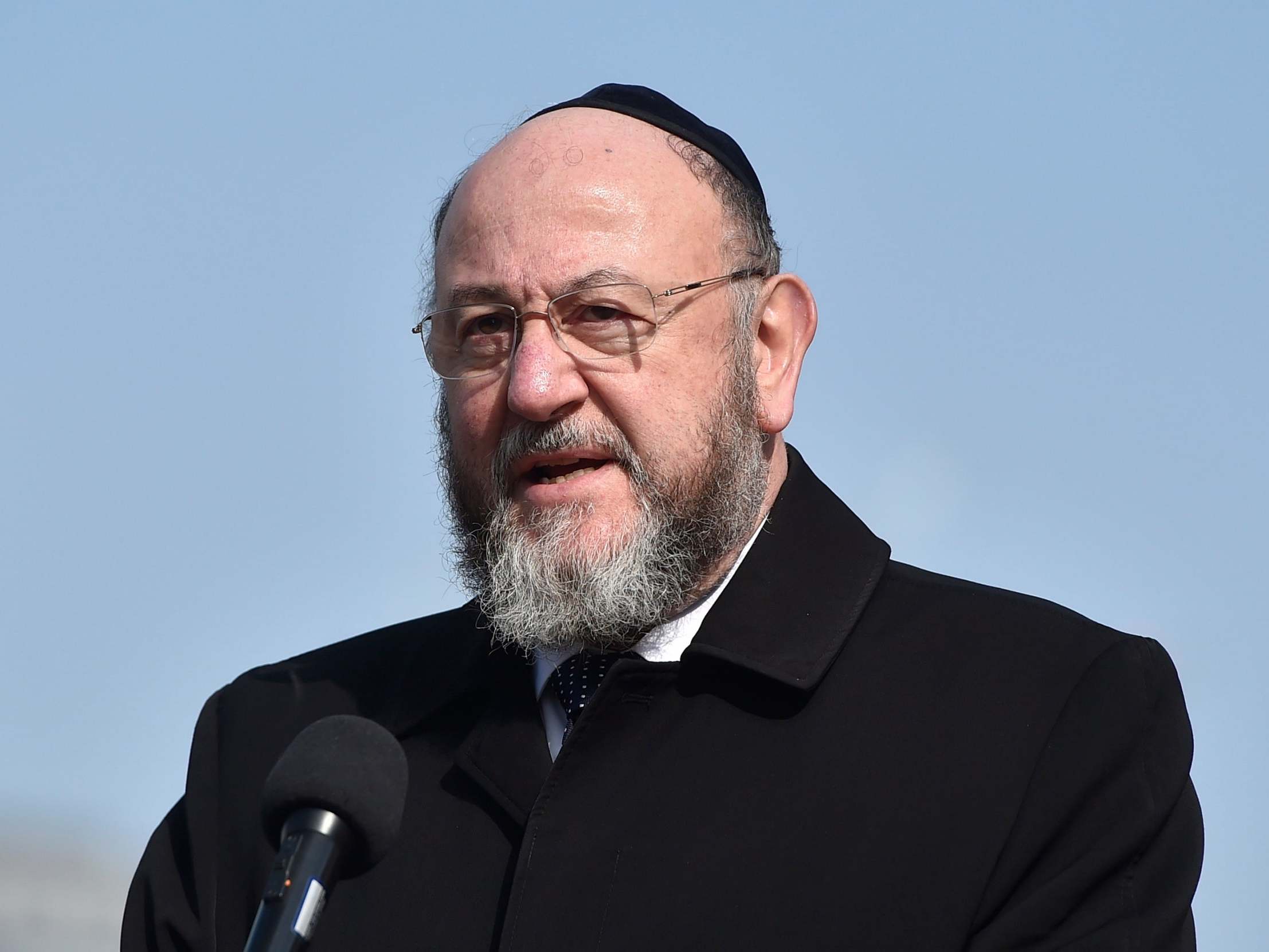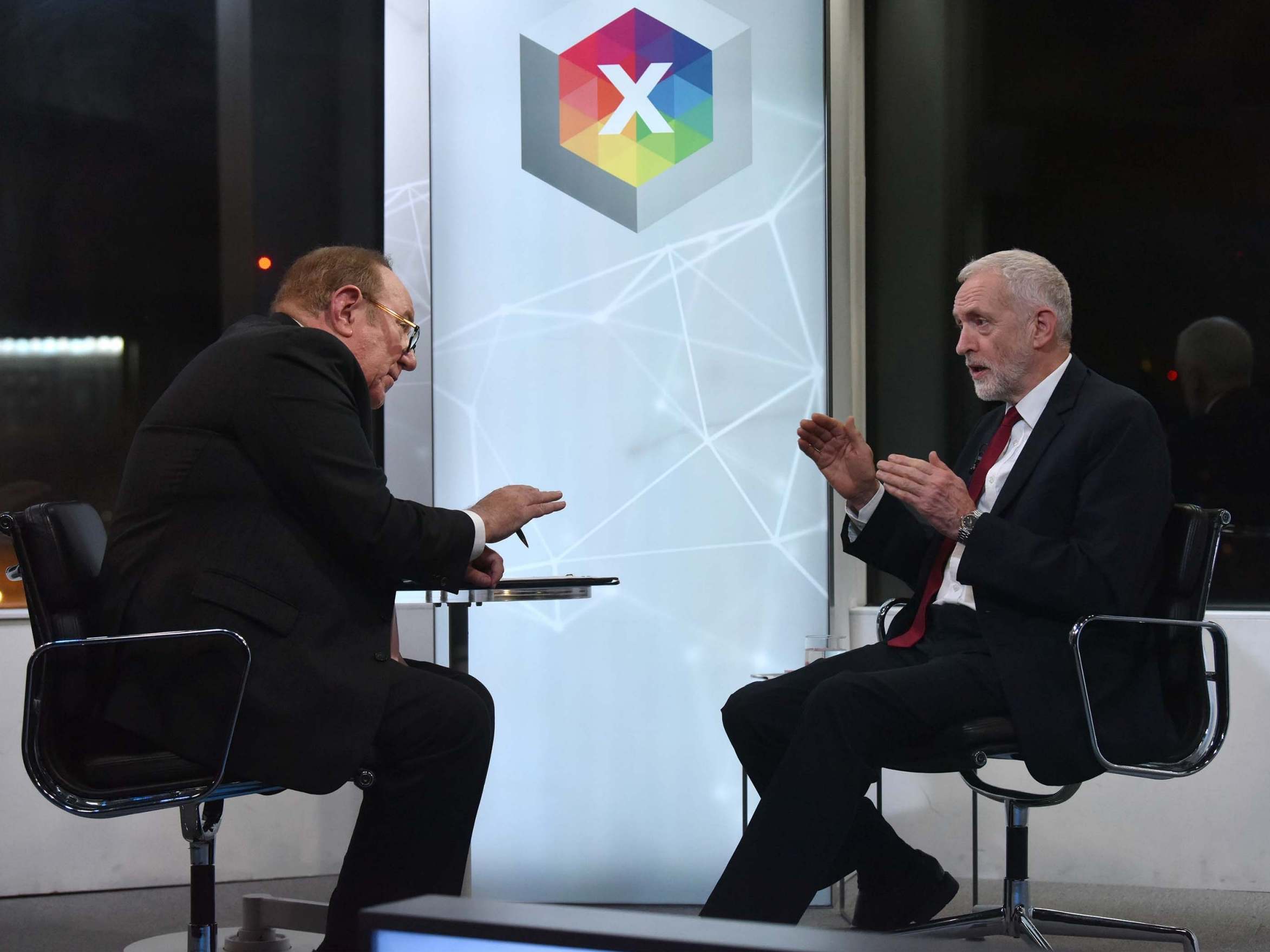Jeremy Corbyn refuses four times to apologise for his handling of antisemitism in Labour party during interview
Labour leader faces challenge after chief rabbi said he was unfit to be prime minister
Your support helps us to tell the story
From reproductive rights to climate change to Big Tech, The Independent is on the ground when the story is developing. Whether it's investigating the financials of Elon Musk's pro-Trump PAC or producing our latest documentary, 'The A Word', which shines a light on the American women fighting for reproductive rights, we know how important it is to parse out the facts from the messaging.
At such a critical moment in US history, we need reporters on the ground. Your donation allows us to keep sending journalists to speak to both sides of the story.
The Independent is trusted by Americans across the entire political spectrum. And unlike many other quality news outlets, we choose not to lock Americans out of our reporting and analysis with paywalls. We believe quality journalism should be available to everyone, paid for by those who can afford it.
Your support makes all the difference.The Labour leader Jeremy Corbyn has refused four times in a TV interview with Andrew Neil to apologise for his handling of antisemitism.
Mr Corbyn was challenged over his record in the BBC One interview just hours after Ephraim Mirvis, the chief rabbi, made an unprecedented intervention in the general election campaign to question whether the Labour leader was fit to be prime minister.
In an article in The Times, the chief rabbi claimed that the “new poison” of antisemitism that had taken root in the Labour Party was “sanctioned from the top”.
And he rejected Labour’s claim to be dealing with the problem as “a mendacious fiction”.
But Mr Corbyn said the rabbi was wrong, telling Neil: “No, he’s not right. Because he would have to produce the evidence to say that’s mendacious.”
The Labour leader insisted he has “developed a much stronger process” and had sanctioned and removed members who have been antisemitic.
Mr Corbyn also denied that the blight increased after he took over the party, saying: “It didn’t rise after I became leader.
“Antisemitism is there in society, there are a very, very small number of people in the Labour Party that have been sanctioned as a result about their antisemitic behaviour.”
He said: “We will not allow antisemitism in any form in our society because it is poisonous and divisive, just as much as Islamophobia or far-right racism is.”
Mr Corbyn insisted he had “strengthened the processes” since a written warning was given to a member who questioned whether 6 million Jews died in the Holocaust. And he said: “Denying the Holocaust is appalling and it’s totally wrong. Holocaust denial is not acceptable in any way whatsoever.”
But asked by Neil whether he would “take this opportunity tonight to apologise to the British Jewish community for what’s happened”, he replied: “What I’ll say is this. I am determined that our society will be safe for people of all faiths. I don’t want anyone to be feeling insecure in our society and our government will protect every community against the abuse they receive on the streets, on the trains or any other form of life.”
Labour peer Lord Falconer, who Mr Corbyn previously asked to carry out an inquiry into the handling of antisemitism, said the rabbi’s attack on Labour was “deserved”.
The former Lord Chancellor said there had been a “failure of leadership” by the party, with 130 antisemitism inquiries still incomplete and “hundreds, maybe thousands” more cases that should be investigated.
At the launch of Labour’s manifesto on race and faith in London, Mr Corbyn denounced antisemitism as “vile and wrong” and promised that if he became prime minister, his door would be open to the chief rabbi and all other religious leaders. He insisted that Labour was dealing with antisemitism allegations “rapidly and effectively”.

But Lord Falconer, who previously served in Mr Corbyn’s shadow cabinet, insisted that Labour was still not dealing with antisemitism “properly”.
“We deserved an attack that strong,” he told BBC Radio 4’s World at One. “We need to deal with antisemitism properly. We are not dealing with the cases within the party – still not.”
The Labour peer, who put his proposed inquiry on hold after a separate investigation was launched by the Equality and Human Rights Commission, said he would still advise people to vote Labour. But he said he hoped the chief rabbi’s “absolutely extraordinary but justified intervention will be listened to by my party”.
The chief rabbi said that the overwhelming majority of British Jews were “gripped by anxiety” ahead of the general election on 12 December.
“Many members of the Jewish community can hardly believe that this is the same party that they called their political home for more than a century,” he wrote. “It can no longer claim to be the party of equality and anti-racism.”
Urging the public to “vote with their conscience”, he said: “It is not my place to tell any person how they should vote. I simply pose the question: what will the result of this election say about the moral compass of our country?”

The Archbishop of Canterbury responded: “That the chief rabbi should be compelled to make such an unprecedented statement at this time ought to alert us to the deep sense of insecurity and fear felt by many British Jews.”
And Dame Louise Ellman, who quit as a Labour MP to sit as an independent, said the chief rabbi was “right to speak out”.
Dame Louise, who is not standing at the election, said: “The reason I have left the Labour Party is because I cannot ask people to vote for Jeremy Corbyn as prime minister while we have a Labour Party that is institutionally antisemitic.
“The chief rabbi’s comments reflect the gravity of the situation, it’s unprecedented and it’s unprecedented for a major political party, a potential party of government, to be perpetuating antisemitism.”

But Labour peer Lord Dubs, who arrived in Britain on a Kindertransport train rescuing Jewish children from the Nazis, said he was “bitterly disappointed” by the rabbi’s intervention.
Insisting that Mr Corbyn was fit to be prime minister, Lord Dubs said: “In so far as the Labour Party is at fault, it’s that we should have acted a bit quicker. What we’re doing now is the right thing.
“For the chief rabbi to be attacking the Labour Party in this particular way and attacking our leader is unjustified and unfair, and I am bitterly, bitterly disappointed that he’s done that.”
Boris Johnson said Mr Mirvis’s intervention was “a very serious business”, while Liberal Democrat leader Jo Swinson said it was “hugely worrying” that the chief rabbi felt compelled to speak.

Join our commenting forum
Join thought-provoking conversations, follow other Independent readers and see their replies
Comments